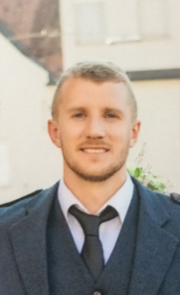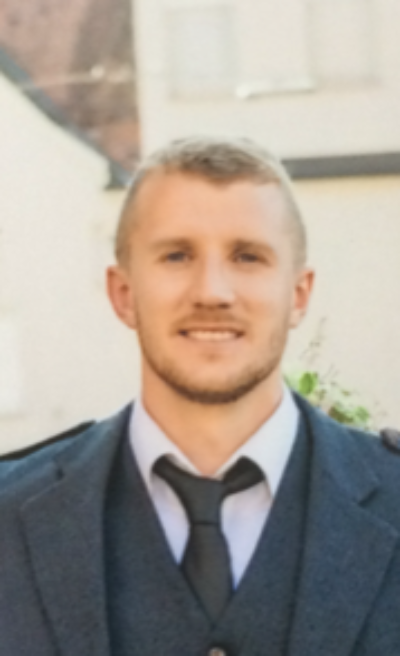



Working in partnership with people affected by pancreatic cancer: A researcher’s perspective
Dr Dominic O’Connor tells us about his research in pancreatic cancer and how the project has benefitted from working in partnership with people with a lived experience of the disease through our Research Involvement Network (RIN).
Can you tell us a bit more about your research background and what your Research Innovation Fund project is focusing on?
I am an exercise physiologist and cancer and exercise rehabilitation specialist. I am currently working as a post-doctoral research fellow at Queens University, Belfast where my research is focused on developing exercise interventions to help individuals with cancer.
Treatment for pancreatic cancer can cause several complications such as fatigue and difficulties with carrying out everyday tasks such as walking and climbing stairs. Although it may seem counter intuitive, exercise has actually been shown to help combat these issues in other cancers such as breast and prostate cancer. However, little research has been carried out involving individuals with pancreatic cancer. Therefore, we received funding from Pancreatic Cancer UK to conduct the PRECISE study (PancREatic Cancer and Individualised Supervised Exercise) which is an early stage project focused on developing bespoke exercise programs and identifying any benefits these may have for people with pancreatic cancer who have undergone surgery and are subsequently undergoing chemotherapy. Because these treatments can have a significant impact on the lives of individuals with pancreatic cancer, we’re hoping that we can show exercise is possible during chemotherapy, and may provide benefits which can improve quality of life.
Has the COVID-19 pandemic affected your research and how have you managed to continue your work?
In March of this year, we were ready to begin the recruitment of our first participants into the PRECISE study. However, just as we opened up, the COVID-19 pandemic struck, and shut us down along with most of the world. Although we were closed, this did not mean we couldn’t continue to develop the study. Pancreatic Cancer UK has a Research Involvement Network (RIN), which is a group of individuals in the UK with a lived experience of pancreatic cancer. The Research Involvement Network gives members the opportunity to shape research and become equal partners with the researchers conducting the work. Members of RIN have so far been involved in every stage of the PRECISE project, including contributing to the funding application to ensure that the research and its design were relevant to the needs of pancreatic cancer patients and inputting into the development of participant information leaflets.
With the downtime imposed on us by COVID-19, we knew the RIN could be an invaluable resource to help us enhance our programme before being able to start working on it again. We therefore decided to conduct a virtual focus group to help tailor the exercise programs and understand how best to improve participation of patients in the study. Recruiting patients is always the most challenging aspect of research and it was hoped that gaining insight from RIN would help us to streamline this process.
Can you tell us more about the focus group and its outcomes for your research?
We ran the virtual focus group in May with six members of RIN. The discussion was very insightful, and my job was easy as the facilitator due to the fact most members knew each other making it an inviting and friendly atmosphere. The input from the participants highlighted several key items we had not considered previously. This included identifying key time points in the participants treatment schedule when it would be best to introduce the idea of an exercise intervention, and which exercise professional should provide this information. Because of this, these can now be incorporated into the PRECISE study, and hopefully will make recruitment a little easier once we re-open.
It sounds as though the focus group was a great success. Did you encounter any challenges and how did you overcome these?
Although public and patient insight can be an invaluable resource, it is not without its challenges. One of the most prominent challenges is truly representing the demographic of the group that you are trying to help. Luckily within our focus group, we had a mix of patients, family members and carers, giving us a balanced view. Another challenge to our opportunity was the limited numbers we could use for the focus group, which are best when numbers are 5-10 participants. However, to combat this, we have also developed an easy to access online survey which covers the questions which were discussed during the focus group. This helped us to maximise the insight gained and ensure that we were reaching as wide an audience as possible.
How important do you think it is for researchers to gain insight from people with a lived experience of a disease?
Being able to work with the RIN is an invaluable resource for researchers. Input from members can help strengthen the relevance and quality of the research, and can provide additional insight which researchers and clinicians may not have considered. This can save time and effort, both of which can be directed elsewhere. I would strongly encourage all researchers funded through public charities to discuss the possibility of public and patient involvement, and speak with members of a RIN to develop research opportunities.
Do you hope to continue working with RIN on this project in the future?
Yes, I think it should definitely be highlighted that working with people affected by pancreatic cancer can make valuable contributions at all stages of research, not just in the early development phase. In the near future, we will be feeding back to the RIN on the progress of the project and how their insight has shaped its design. We also hope to continue to involve the RIN after completion of our study to help disseminate our findings, evaluate its impact, and plan future studies based on the results.
Do you have anything you would like to say to members of RIN who have helped you with this project or to people who have been affected by the disease and are thinking of getting involved in research?
I’d like to say thank you to the RIN and everyone affected by pancreatic cancer who has given up their time to get involved in research. Your input really does make a massive difference and helps shape our research. Without it, our jobs would be much more difficult.
If you have any questions for Dom or would like to hear more about the Research Involvement Network please email research@pancreaticcancer.org.uk.
You can also read our blog by Claire Hopkins, a member of RIN, who talks about what it is like to draw on a personal and loved ones experience of pancreatic cancer to work in partnership with pancreatic cancer researchers and being more actively involved in shaping their work.

